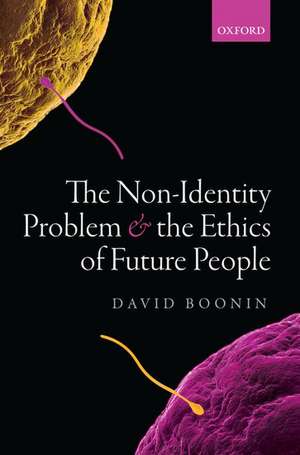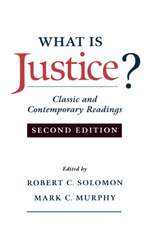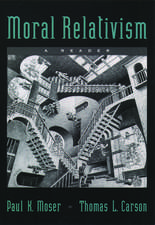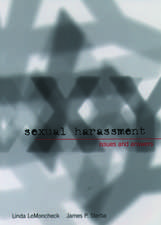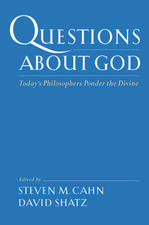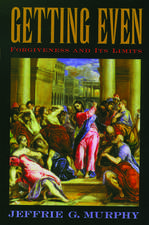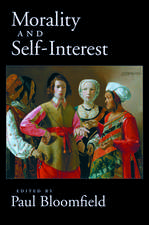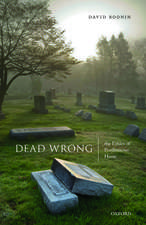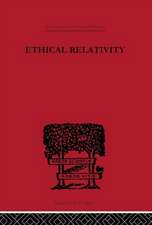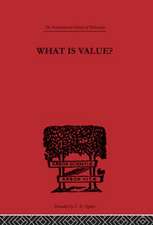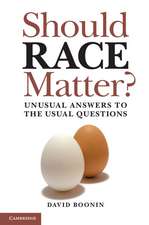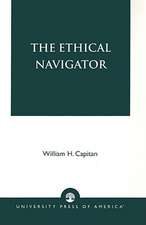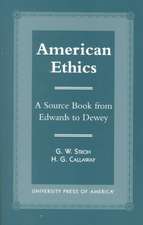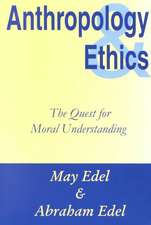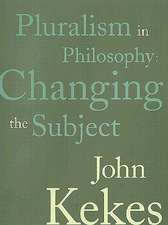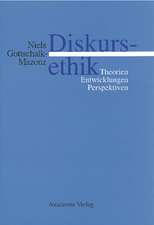The Non-Identity Problem and the Ethics of Future People
Autor David Booninen Limba Engleză Paperback – 23 iul 2020
| Toate formatele și edițiile | Preț | Express |
|---|---|---|
| Paperback (1) | 237.59 lei 10-16 zile | |
| OUP OXFORD – 23 iul 2020 | 237.59 lei 10-16 zile | |
| Hardback (1) | 524.38 lei 31-37 zile | |
| OUP OXFORD – 16 oct 2014 | 524.38 lei 31-37 zile |
Preț: 237.59 lei
Preț vechi: 253.19 lei
-6% Nou
Puncte Express: 356
Preț estimativ în valută:
45.48€ • 49.41$ • 38.23£
45.48€ • 49.41$ • 38.23£
Carte disponibilă
Livrare economică 20-26 martie
Preluare comenzi: 021 569.72.76
Specificații
ISBN-13: 9780198866855
ISBN-10: 0198866852
Pagini: 320
Dimensiuni: 156 x 234 x 18 mm
Greutate: 0.48 kg
Ediția:1
Editura: OUP OXFORD
Colecția OUP Oxford
Locul publicării:Oxford, United Kingdom
ISBN-10: 0198866852
Pagini: 320
Dimensiuni: 156 x 234 x 18 mm
Greutate: 0.48 kg
Ediția:1
Editura: OUP OXFORD
Colecția OUP Oxford
Locul publicării:Oxford, United Kingdom
Recenzii
Review from previous edition A model of philosophical reasoning . . . his argument is highly compelling. His negative arguments are thorough, clear, and insightful, and his positive arguments are illuminating. Anyone whose research relates to the non-identity problem -- and given the interdisciplinary nature of the problem, that is a large number of people -- would be well advised to read this book.
important . . . argues for surprising and controversial conclusions
David Boonin's new book provides a wonderful opportunity to take a fresh look at what is perhaps the most important problem ever to arise within the area of population ethics. Brilliantly argued, perfectly organized, fascinating in content and accessible to a broad range of readers, The Non-Identity Problem and the Ethics of Future People marks a critical turning point in our efforts to understand the structure of moral law.
For almost forty years, philosophers have searched for an explanation of why it is wrong for us to bring about the existence of worse- rather than better-off people. In this thorough and methodical book, David Boonin argues that this search is misguided. He systematically reviews all the explanations that have been offered (at least all I know of), and makes a strong case that they either fail to explain the assumed wrong or explain it in ways that have even more implausible implications than denying the wrong. Some books are seminal, opening up a new field or inquiry; this book could be called terminal, cogently arguing that we abandon a search that has been pursued with great resourcefulness and tenacity. Boonin leaves us with a conclusion that many will find disturbing, but some will find liberating: that we face far fewer moral constraints in the creation of future people than we commonly suppose
Throughout this careful examination, Boonin employs thoughtful case studies and thought experiments that serve to engage the reader in the analysis. The result is a book that is likely to put this philosophical quandary to rest ... Essential.
important . . . argues for surprising and controversial conclusions
David Boonin's new book provides a wonderful opportunity to take a fresh look at what is perhaps the most important problem ever to arise within the area of population ethics. Brilliantly argued, perfectly organized, fascinating in content and accessible to a broad range of readers, The Non-Identity Problem and the Ethics of Future People marks a critical turning point in our efforts to understand the structure of moral law.
For almost forty years, philosophers have searched for an explanation of why it is wrong for us to bring about the existence of worse- rather than better-off people. In this thorough and methodical book, David Boonin argues that this search is misguided. He systematically reviews all the explanations that have been offered (at least all I know of), and makes a strong case that they either fail to explain the assumed wrong or explain it in ways that have even more implausible implications than denying the wrong. Some books are seminal, opening up a new field or inquiry; this book could be called terminal, cogently arguing that we abandon a search that has been pursued with great resourcefulness and tenacity. Boonin leaves us with a conclusion that many will find disturbing, but some will find liberating: that we face far fewer moral constraints in the creation of future people than we commonly suppose
Throughout this careful examination, Boonin employs thoughtful case studies and thought experiments that serve to engage the reader in the analysis. The result is a book that is likely to put this philosophical quandary to rest ... Essential.
Notă biografică
David Boonin is Professor of Philosophy at the University of Colorado. He received his BA from Yale University and his PhD from the University of Pittsburgh. Boonin is the author of Thomas Hobbes and the Science of Moral Virtue (CUP, 1994), A Defense of Abortion (CUP, 2003), The Problem of Punishment (CUP, 2008), Should Race Matter? (CUP, 2011), Beyond Roe: Why Abortion Should be Legal Even if the Fetus is a Person (OUP, 2019), and Dead Wrong: The Ethics of Posthumous Harm (OUP, 2019) as well as a number of articles on such subjects as animal rights, euthanasia, same-sex marriage, and our moral obligations to past and future generations. He is also the editor of the Palgrave Handbook of Philosophy and Public Policy (Palgrave 2018), the co-author and co-editor, with his colleague Graham Oddie, of the popular textbook What's Wrong?: Applied Ethicists and Their Critics (OUP, 2009 (second edition)), and the current Editor of Public Affairs Quarterly.
